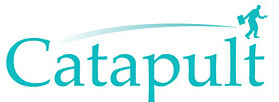General Career Page
Get, Keep and Excel in the Job – Assessing your employability ‘soft skills’
Transitioning from one job, career or organisation to another requires a different way of thinking. Traditionally, we map ourselves against job descriptions based on our experience, our knowledge and our technical skills or know how in the role or sector we are targeting. Whilst this is easy to measure when it comes to qualifications and technical skills, it is less clear when talking about what have historically been called ‘soft skills’; yet it is these that are your differentiator as one candidate to the next. Measuring these accurately has been a challenge for both individuals and employers because assessment is based in the past and is subjective.
Past success in one role or organisation does not guarantee success in another. Personality theory, on which many psychometric tests are based, suggests that our traits and preferences are fixed. Value Science tells us that, whether these are fixed or not, our thinking patterns and how we value change depending on our environment and this will have an impact on our ability to demonstrate the skills and behaviours needed for success.
Every person in the world is unique. We all have certain innate or inborn skills and aptitudes but we also develop different attitudes, beliefs, likes, dislikes, prejudices, and biases. These are our values, and our values affect our thinking. In turn, our thinking influences how we make decisions, solve problems, process information, and ultimately, how we behave.
Axiometrics™, based on Value Science and mathematics, is a scientific, objective, and reliable way of measuring our ability to make decisions and take action in a given environment. It identifies our potential to demonstrate our unique talents and skills now and in the future.
Importantly, Axiometrics™:
- Objectively identifies how our mind analyses and interprets our experiences and identifies how we are most likely to react in any given situation.
- Makes no attempt to classify or group someone.
- Is based on a single Universal Norm, not one ‘created’ from a selection to validate a result.
- Is not discriminatory for age, sex, creed or culture and is validated by the EEOC (Equal Employment Opportunities Commission).
- Can be used not only to look at current performance, but also to predict future performance.
- Assessments take only 15 minutes to complete yet there are 6.4 quadrillion possible outcomes.
- Is a “thinking” exercise meaning that as you change and develop, the profile can be re-taken to show Performance Improvement and ongoing development needs.
